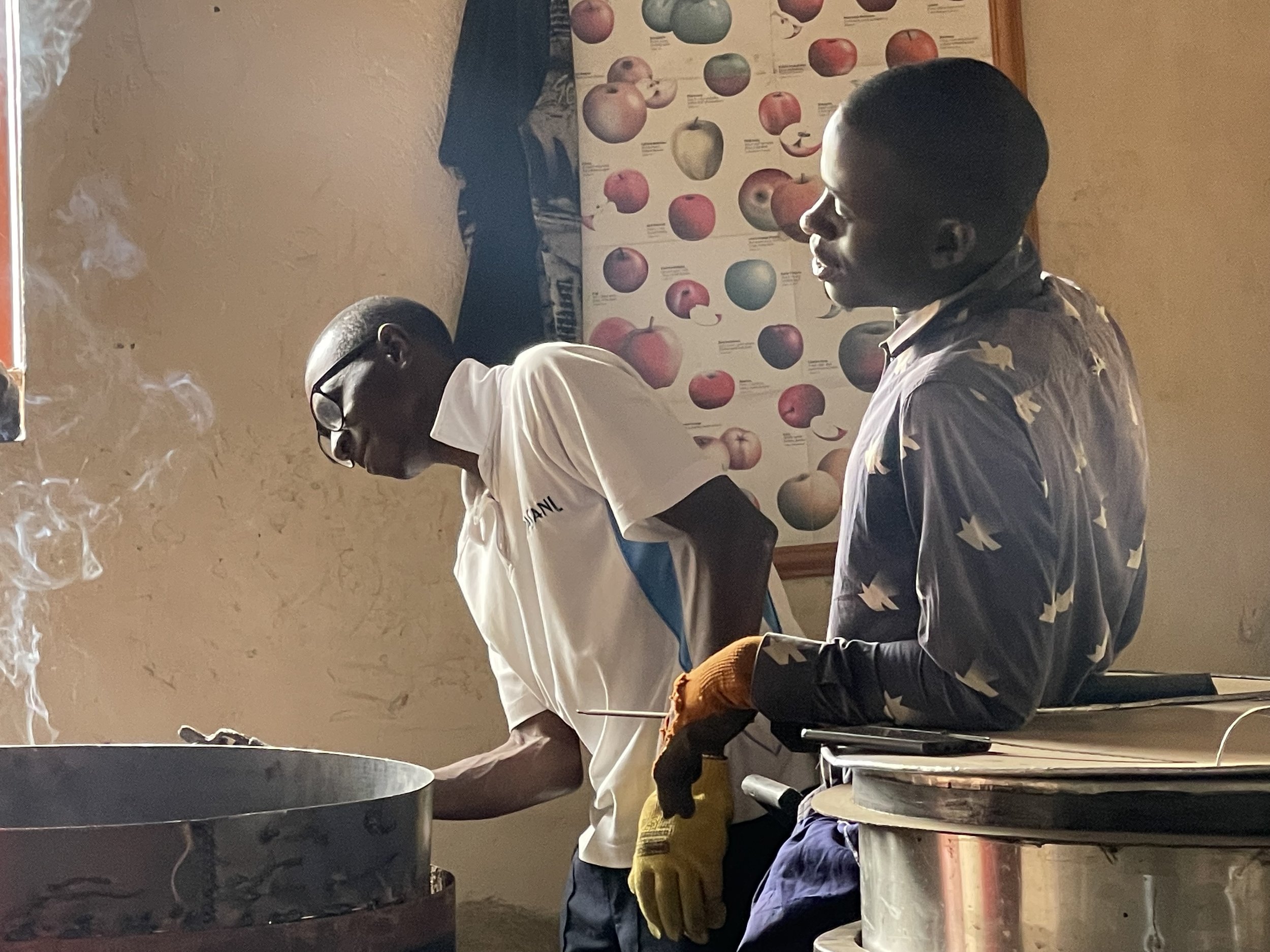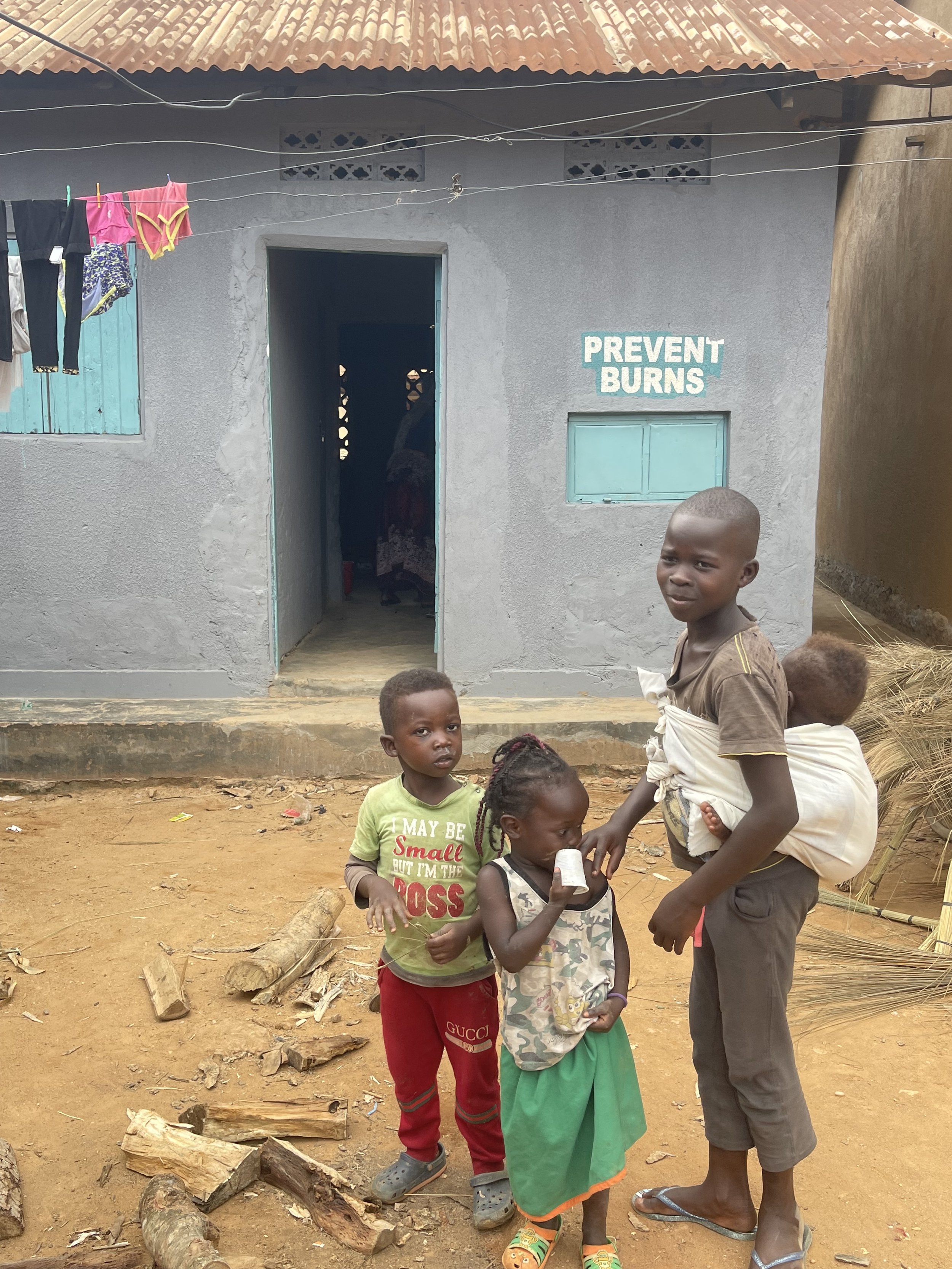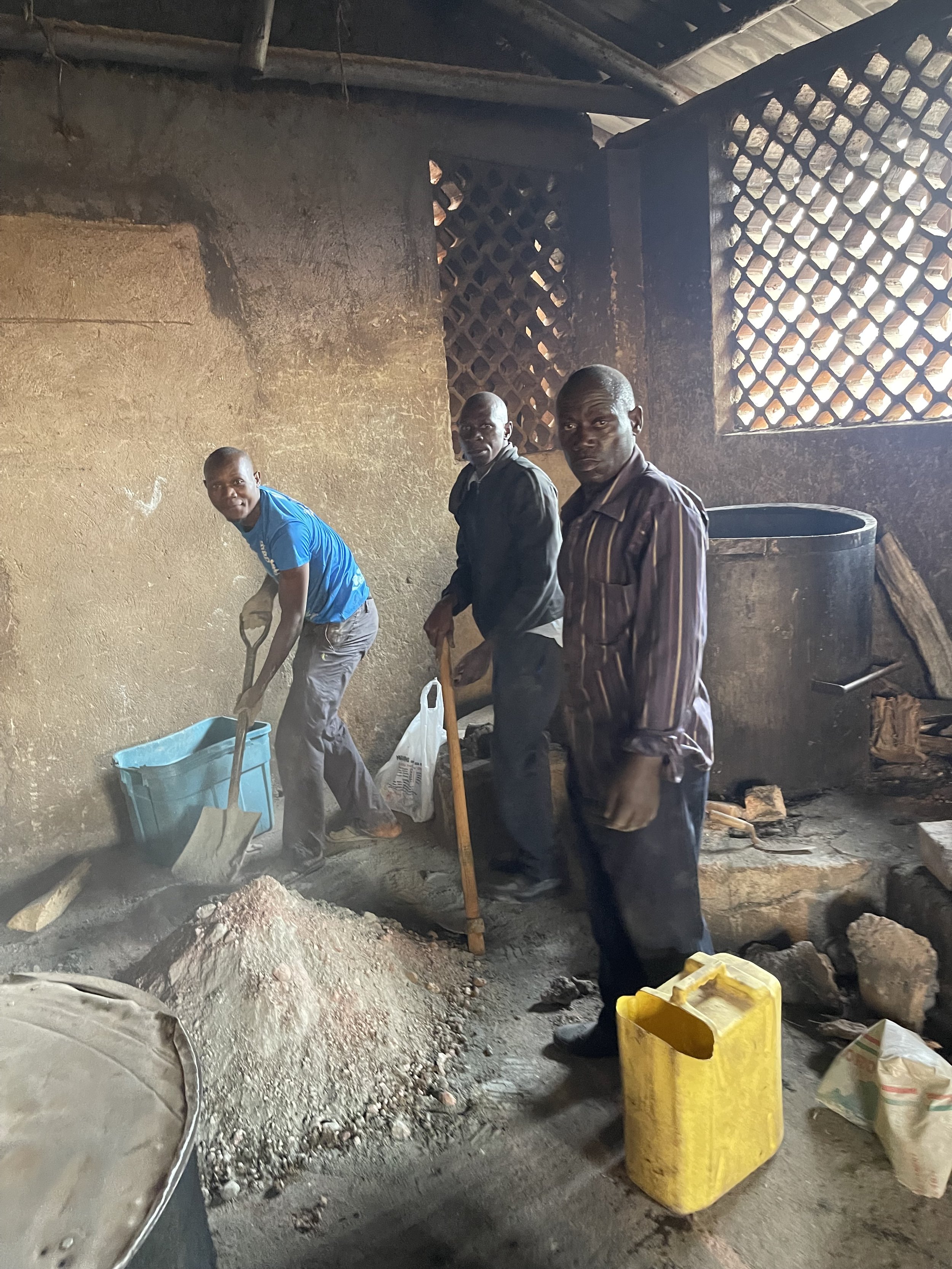The month of December found us welcoming a new school in Jinja. Vic View Primary School in now ready to start cooking using the institutional improved cook stoves (IICS). This is a primary school of approximately 600 day and boarding students. Currently consuming 4 trucks of firewood per term, they will be soon start to see the firewood savings reducing to half of that consumption, as they moved away from their previous 3-stone fires.
Vic View came recommended from our existing client, Home of Hope, an orphanage located not far away from the school, that has joined our Project Activity since 2019. On our way from Kampala, we passed via the beautiful Mabira forest, a natural tropical rainforest established in the 1900s. Mabira translates as “a big forest” in the local language. We hope interventions like those with our IICS will help to contribute to the preservation of its 306 square kilometers.
















































